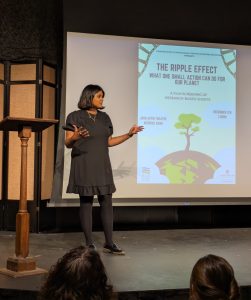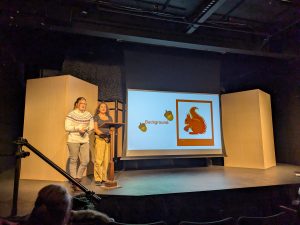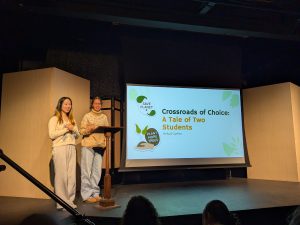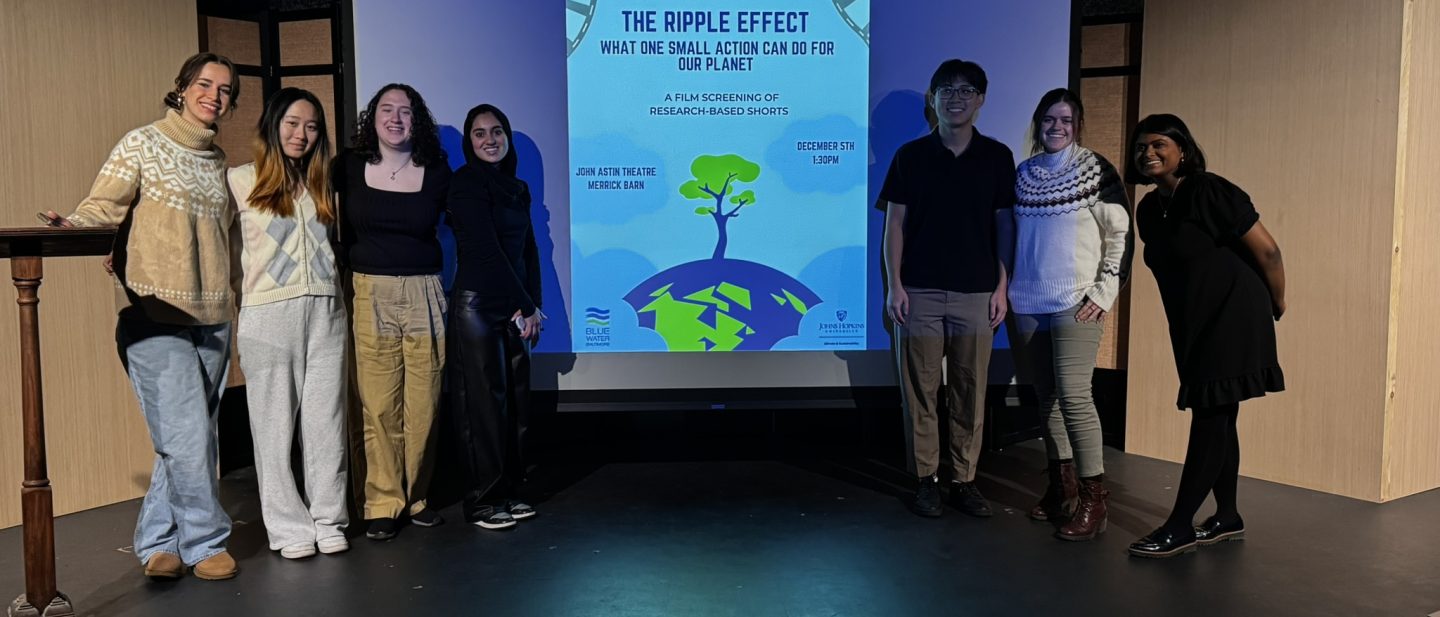
Through the Campus as a Living Lab program, doctoral student Saraniya Tharmarajah was awarded funding to support a course to explore climate misinformation, social and behavioral theories of change, and persuasive communication through art. In the course, students conducted formative research to understand the JHU student audience and design a targeted arts-based climate communication strategy.
We spoke with Saraniya to discover the motivation behind her course. She explained that traditional approaches to climate communication have conveyed information by disseminating facts on climate change and issues, without providing avenues to enact meaningful action.
Art can help in understanding and communicating information about issues that are overwhelming for the human cognition, including the climate crisis and effective solutions
She believes that narrative communication, such as theater and film, can be a critical tool in uniting individuals as a collective to promote effective social action. With the course Saraniya aimed to equip students with knowledge and tools to identify and address pressing climate and sustainability challenges through communication initiatives on campus.
“By connecting social and behavior theoretical frameworks of public health with persuasive communication theories, the course and media deliverables aim to empower students to take climate action on their own campus and with local environmental organizations” said Saraniya.
The Ripple Effect Film Screening
Each student team showcased their final projects at a film screening on campus on December 5th at the John Astin Theatre. During the screening, students presented the research behind their film. The research included interviews they conducted with students on perceptions around climate action. In addition, the students employed evidence-based strategies to develop storytelling to drive action. The teams incorporated behavior change theory into their story boards, including demonstrating relatable role models and focusing on positive outcomes.
Opportunity for Action
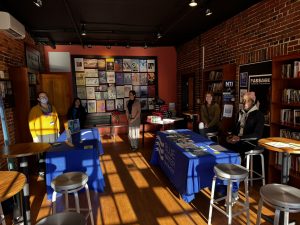 Following the film screening, attendees had the opportunity to learn how to take climate action by visiting informational tables hosted by the project partners: the JHU Office of Climate and Sustainability and a local non-profit, Blue Water Baltimore. Blue Water Baltimore works towards its mission of restoring Baltimore’s waterways by monitoring water quality, advocating for environmental laws, educating about protecting the environment, cleaning up trash, and reducing polluted runoff. The JHU Office of Climate and Sustainability aims to empower students, faculty, and staff to meaningfully contribute to a more just and sustainable world.
Following the film screening, attendees had the opportunity to learn how to take climate action by visiting informational tables hosted by the project partners: the JHU Office of Climate and Sustainability and a local non-profit, Blue Water Baltimore. Blue Water Baltimore works towards its mission of restoring Baltimore’s waterways by monitoring water quality, advocating for environmental laws, educating about protecting the environment, cleaning up trash, and reducing polluted runoff. The JHU Office of Climate and Sustainability aims to empower students, faculty, and staff to meaningfully contribute to a more just and sustainable world.
After taking the course, Emily Klaus, a senior Environmental Engineering major stated “I believe that knowing how to effectively communicate environmental issues, including ways in which people can help, is one of the most important things in my career path.” Emily shared that learning how to draw attention to topics and convey memorable messages to different audiences will help her in the future to convince groups to deploy more sustainable business practices.
Impacts on Campus Sustainability
We spoke to Claire Runquist, JHU Senior Sustainability Specialist for Engagement and Community Building, who served as the staff partner for the course.
“It was an exciting opportunity for me to think about ways that creativity can be integrated into sustainability outreach efforts,” said Claire.
For Claire, the most tangible benefit to the partnership was that the JHU Office of Climate and Sustainability was “able to expand our reach and offer perspectives from multiple viewpoints, which I think makes any project stronger.” She also shared that the project was an opportunity for her to dive deeper into the academic side of Hopkins, connect with students, and learn new approaches to inform campus engagement.
